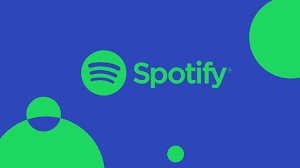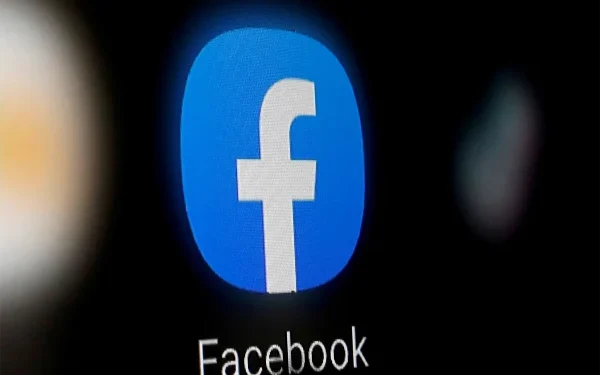Introduction: Facebook’s Bold Move to Curb Pirated Content
In a significant policy update aimed at enhancing content integrity and user experience, Facebook, the flagship platform of Meta, has announced a new crackdown on accounts engaged in reposting, stealing, or duplicating content without permission. The initiative is designed to reduce spam, misinformation, and copyright violations, while also empowering original creators to gain the recognition and monetization they deserve.
The announcement came in a blog post published by Meta on Monday, where the company detailed its renewed strategy to tackle a growing problem that has plagued the platform for years — the rampant piracy and unauthorized reuse of content, particularly videos, memes, and viral media.
With over 3 billion monthly active users, Facebook is one of the largest content-sharing platforms in the world. However, this massive scale also makes it a hotspot for content theft and fake engagement tactics, undermining the work of genuine content creators and negatively impacting the platform’s credibility.
Understanding the Problem: Why Pirated Content is Harmful
Duplicate Content and Spam Dilute the User Experience
From funny memes and short videos to inspirational quotes and trending reels, Facebook’s ecosystem thrives on visual and textual content. But users often encounter the same content posted repeatedly by different pages or profiles, many of which falsely claim to be the original source. These accounts often exploit popular content to gain likes, shares, and followers, which they may later monetize or use for manipulative purposes.
Meta’s blog explains:
“It often happens that the same meme or video appears again and again, sometimes from accounts that claim to have created them and sometimes from spamming or low-quality accounts. This spoils everyone’s experience and creates difficulties for new creators.”
This constant recycling of content not only clutters user feeds but also devalues the original creator’s efforts, making it harder for genuine voices to stand out in the crowded social space.
Meta’s Solution: Targeting Content Pirates with Monetization Penalties
Meta’s new enforcement policy is focused on restricting monetization and visibility for repeat offenders who steal content. The company has outlined that:
- Creators who regularly use videos, images, or text copied from other creators will lose monetization privileges temporarily.
- Their content will also appear less frequently in Facebook feeds, significantly reducing their visibility and engagement.
- Systems will detect duplicate content automatically, helping Facebook block or de-prioritize such posts to protect original viewership and distribution.
These measures are designed not only to deter plagiarists but also to reward original creators whose content drives value and community engagement on the platform.
How Facebook Detects Pirated and Duplicate Content
AI and Machine Learning at Work
Facebook has long relied on advanced artificial intelligence (AI) and machine learning algorithms to detect policy violations, misinformation, and spam. These technologies are now being refined further to identify duplicate content, even when it is slightly altered or cropped to bypass detection.
Key detection strategies include:
- Video and image matching algorithms that recognize visual similarities even with minor edits.
- Text analysis tools that spot reworded or paraphrased content that closely mirrors the original.
- Engagement pattern tracking, which flags accounts posting highly shared content without proper attribution.
These systems operate continuously to scan, analyze, and label millions of pieces of content uploaded daily.
Rewarding Original Creators: A Step Toward a Fairer Ecosystem
Credit Where Credit Is Due
Meta emphasized in its statement that the platform is actively working on ways to ensure that original creators get proper credit for their work. Although specifics were not disclosed, the company has previously introduced features like rights manager tools, content ownership claims, and creator badges, all aimed at ensuring content traceability and ownership protection.
By demoting and demonetizing content pirates, Facebook aims to make room for authentic creators, enabling them to grow their audiences, earn from their work, and contribute meaningfully to the platform’s culture.
Combating Fake Engagement: Half a Million Accounts Removed in 2025
As part of its broader commitment to platform integrity, Meta revealed that in the first half of 2025 alone, the company disabled over 500,000 accounts involved in spamming, fake engagement, and content theft.
These accounts were engaged in tactics such as:
- Artificially inflating likes, shares, and comments
- Reposting stolen content to gain viral traction
- Using clickbait headlines or misleading thumbnails
- Running automated bots for mass sharing
By removing such accounts, Facebook hopes to create a cleaner, more trustworthy content environment, and reduce misinformation and content manipulation.
Impact on Content Creators and Publishers
Encouraging Ethical Content Practices
Facebook’s new approach sends a clear signal to content creators, influencers, and publishers: authenticity and originality are now essential for success on the platform. Those who rely on scraping or duplicating others’ work will face serious repercussions, including reduced reach, blocked monetization, or even account suspension.
For original creators, this shift is welcome news. With fewer fake or spammy accounts dominating viral content, legitimate voices have a better chance of visibility, revenue generation through Facebook’s ad tools, and access to brand partnerships and other creator incentives.
What This Means for Facebook Users
For everyday Facebook users, these changes are likely to result in:
- Cleaner and more diverse feeds, with fewer recycled memes and posts
- More authentic content from verified or original sources
- Reduced exposure to spam and misinformation
- Better engagement opportunities with real content creators and niche communities
Ultimately, the aim is to enhance user trust, making Facebook a more enjoyable and reliable platform for entertainment, information, and social interaction.
Comparative Insights: How Other Platforms Handle Content Piracy
YouTube, Instagram, and TikTok
Facebook is not alone in its fight against pirated content. Other major platforms have also rolled out various anti-theft measures:
- YouTube uses Content ID, a powerful system that lets copyright holders identify and manage their content across the platform.
- Instagram, also owned by Meta, recently enhanced its copyright protection features to detect stolen reels and photos.
- TikTok has introduced watermarking and copyright flags to discourage unauthorized reposts.
However, Facebook’s new strategy marks a more aggressive and monetization-centered approach, directly hitting violators where it hurts most — their pocketbooks and audience reach.
Expert Commentary: A Necessary Evolution for Platform Health
Social media analysts and digital rights advocates have welcomed Facebook’s new initiative, calling it a long overdue move to preserve digital creativity and fairness.
Sarah Bennington, a digital media expert at the University of California, commented:
“Platforms like Facebook were becoming breeding grounds for stolen content. This step signals a new phase where tech giants are finally recognizing that real creators deserve real protection — and revenue.”
However, some critics argue that enforcement consistency and false positives remain a challenge. Meta has promised to allow appeals for wrongly flagged content and is continuing to improve its detection accuracy.
Conclusion: Facebook’s Fight Against Piracy Marks a Turning Point
The latest move by Meta to combat content piracy and fake engagement on Facebook represents a major shift toward platform accountability, user satisfaction, and creator empowerment. By penalizing those who repeatedly post or steal others’ work, and rewarding originality, Facebook is laying the groundwork for a more equitable and enjoyable digital ecosystem.
As the battle against misinformation, content theft, and low-quality spam continues, Facebook users and creators alike can expect to see noticeable improvements in feed quality, platform transparency, and monetization fairness.
This landmark initiative may well become a blueprint for how other platforms tackle similar challenges, as the internet evolves into a space that values authentic voices over viral theft.
























